How Facebook is avoiding being confused with Facebook
The tech giant has launched a new logo - and confused a lot of people in the process
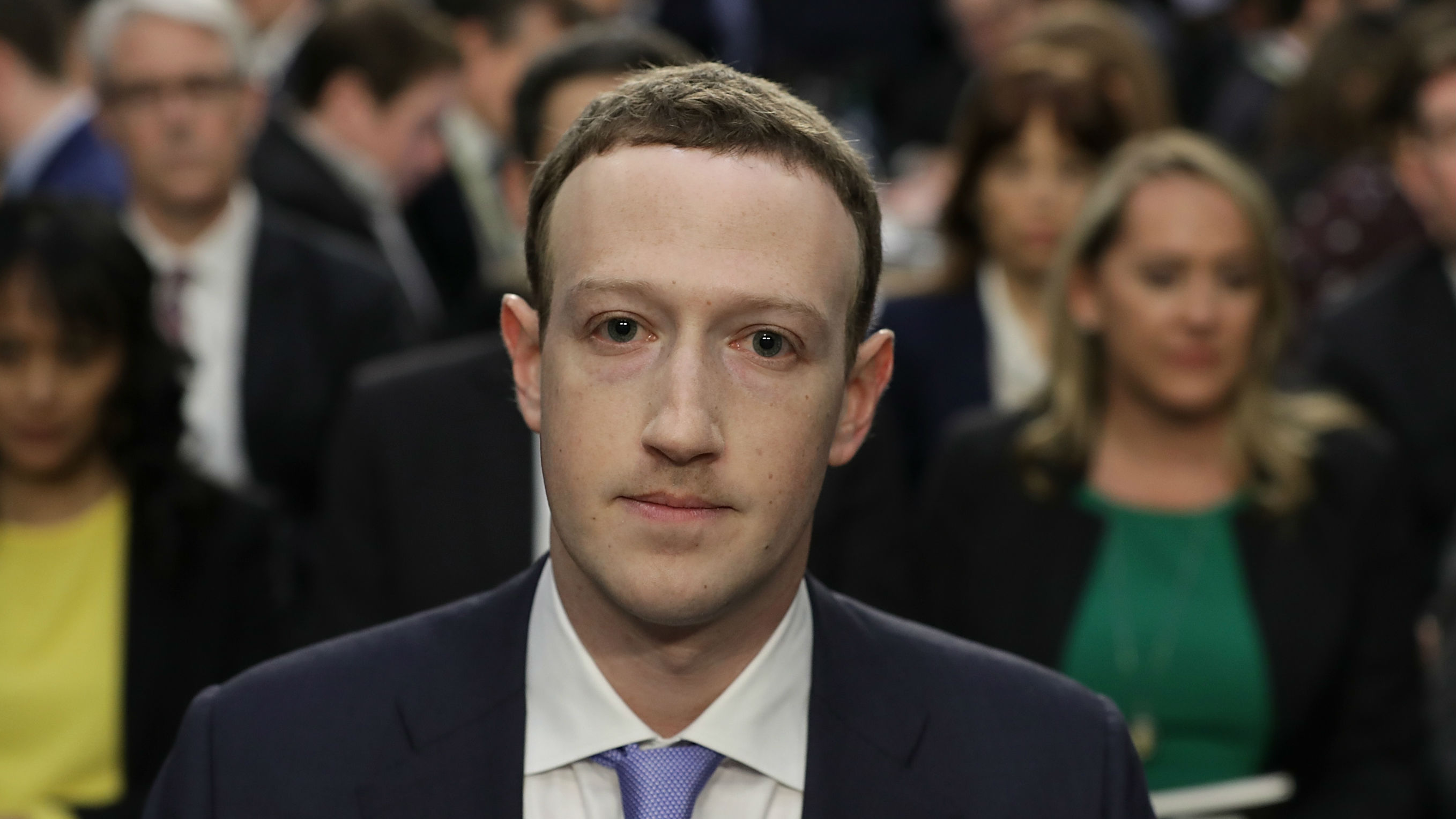
A free daily email with the biggest news stories of the day – and the best features from TheWeek.com
You are now subscribed
Your newsletter sign-up was successful
Facebook is launching a new logo in a bid to prevent the multibillion-dollar company being confused with its famous social media platform of the same name.
The new logo is still just the word Facebook, but is capitalised and uses autumnal colours - in contrast to that of the social networking service, which is in lowercase writing and is blue.
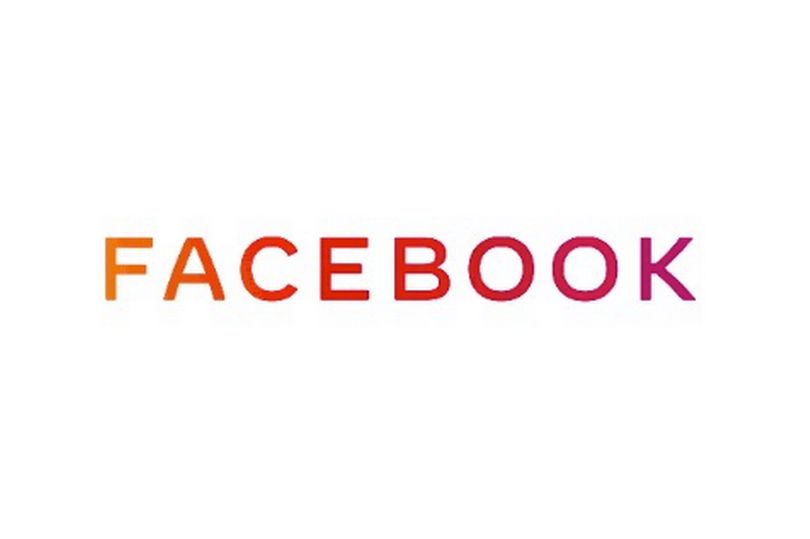
Confused? You’re not the only one...
The Week
Escape your echo chamber. Get the facts behind the news, plus analysis from multiple perspectives.

Sign up for The Week's Free Newsletters
From our morning news briefing to a weekly Good News Newsletter, get the best of The Week delivered directly to your inbox.
From our morning news briefing to a weekly Good News Newsletter, get the best of The Week delivered directly to your inbox.
Facebook is the name of two different things - the social media platform founded by Mark Zuckerberg in 2004 and the company that owns that social media platform.
Facebook the company also owns a range of other media services, including Messenger, Instagram and WhatsApp.
As Sky News reports, there used to be a similar set-up at Google, which was previously the name of both the search engine website and the company that owned it.
In 2015, the company that owns the platform was renamed Alphabet Inc., with Google as a subsidiary.
A free daily email with the biggest news stories of the day – and the best features from TheWeek.com
Facebook says that it is now doing the same thing, but that the website and the company will still carry the same name.
So why has Facebook rebranded itself?
Facebook has expanded by buying a number of other social media platforms - including WhatsApp and Instagram - with a focus on assimilating those companies into its business. But as Facebook grew, and its market share increased, for a long time it was not clear “how the company would do this and if it could do so legally”, says Sky News.
Facebook says that the rebrand is aimed at clarifying the distinction between the Facebook company and the Facebook social media platform.
Chief marketing officer Antonio Lucio said in a blog post: “We’re updating our company branding to be clearer about the products that come from Facebook.
“We’re introducing a new company logo and further distinguishing the Facebook company from the Facebook app, which will keep its own branding.”
However, as TechCrunch reports, some commentators have suggested that the rebrand is aimed at reducing potential competition concerns and addressing worries about the company’s market share. According to the website, the move is being viewed by some as a preemptive “defence against antitrust action” over the company’s market dominance.
Any other possible reasons for the rebrand?
The company has also had its fair share of image issues, largely as a result of user data rows and its involvement in the Cambridge Analytica scandal.
The Daily Mirror says the new logo is part of a “desperate attempt to rebrand” the company that has been “widely mocked by confused users”.
Meanwhile, Matthew Cantor in The Guardian questions whether the capitalised rebrand is enough to “save a toxic brand”.
“Facebook is the social network you hate; FACEBOOK is the company you didn’t know you loved,” Cantor says.
“When foreign powers interfere with the 2020 election. Mark Zuckerberg can tell Congress: sure, Facebook has its problems. But FACEBOOK is doing just fine.”
Joe Evans is the world news editor at TheWeek.co.uk. He joined the team in 2019 and held roles including deputy news editor and acting news editor before moving into his current position in early 2021. He is a regular panellist on The Week Unwrapped podcast, discussing politics and foreign affairs.
Before joining The Week, he worked as a freelance journalist covering the UK and Ireland for German newspapers and magazines. A series of features on Brexit and the Irish border got him nominated for the Hostwriter Prize in 2019. Prior to settling down in London, he lived and worked in Cambodia, where he ran communications for a non-governmental organisation and worked as a journalist covering Southeast Asia. He has a master’s degree in journalism from City, University of London, and before that studied English Literature at the University of Manchester.
-
 Quiz of The Week: 14 – 20 February
Quiz of The Week: 14 – 20 FebruaryQuiz Have you been paying attention to The Week’s news?
-
 The Week Unwrapped: Do the Freemasons have too much sway in the police force?
The Week Unwrapped: Do the Freemasons have too much sway in the police force?Podcast Plus, what does the growing popularity of prediction markets mean for the future? And why are UK film and TV workers struggling?
-
 Properties of the week: pretty thatched cottages
Properties of the week: pretty thatched cottagesThe Week Recommends Featuring homes in West Sussex, Dorset and Suffolk
-
 Is social media over?
Is social media over?Today’s Big Question We may look back on 2025 as the moment social media jumped the shark
-
 Metaverse: Zuckerberg quits his virtual obsession
Metaverse: Zuckerberg quits his virtual obsessionFeature The tech mogul’s vision for virtual worlds inhabited by millions of users was clearly a flop
-
 Social media: How 'content' replaced friendship
Social media: How 'content' replaced friendshipFeature Facebook has shifted from connecting with friends to competing with entertainment companies
-
 Meta on trial: What will become of Mark Zuckerberg's social media empire?
Meta on trial: What will become of Mark Zuckerberg's social media empire?Today's Big Question Despite the CEO's attempt to ingratiate himself with Trump, Meta is on trial, accused by the U.S. government of breaking antitrust law
-
 What does an ex-executive's new memoir reveal about Meta's free speech pivot?
What does an ex-executive's new memoir reveal about Meta's free speech pivot?Today's Big Question 'Careless People' says Facebook was ready to do China censorship
-
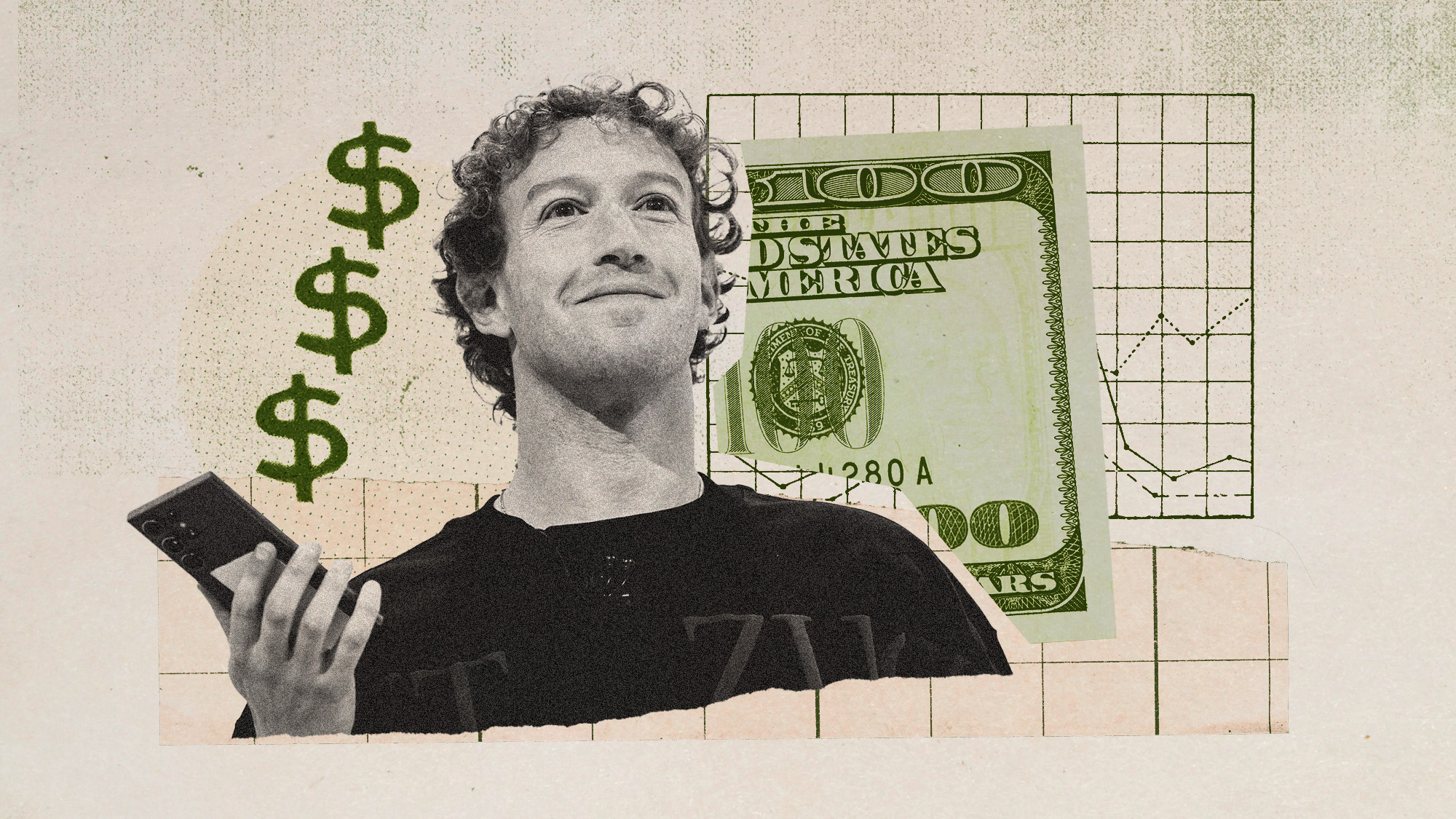 What's Mark Zuckerberg's net worth?
What's Mark Zuckerberg's net worth?In Depth The Meta magnate's products are a part of billions of lives
-
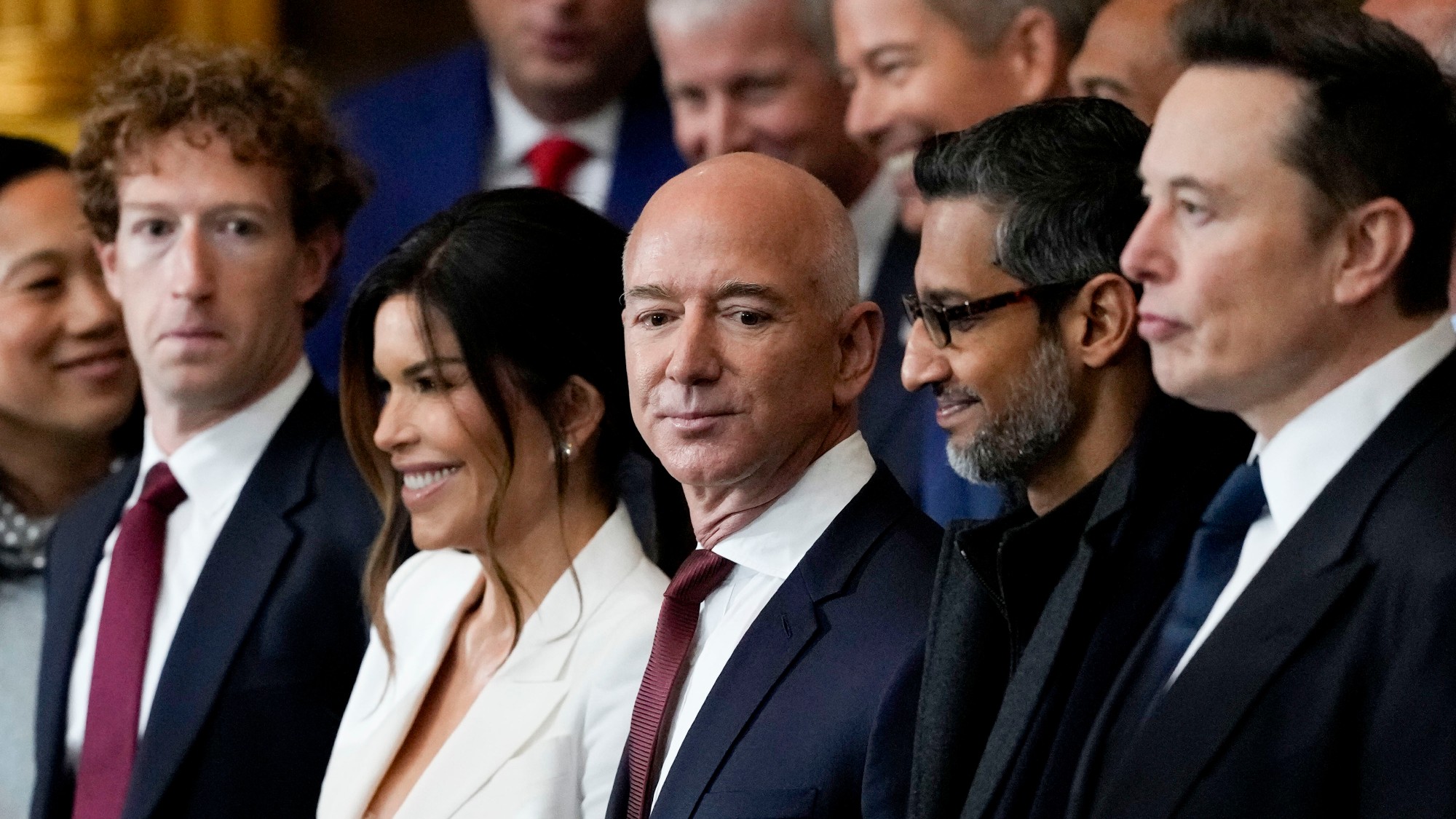 What Trump's 'tech bros' want
What Trump's 'tech bros' wantThe Explainer Elon Musk, Mark Zuckerberg and Jeff Bezos had 'prime seats' at the president's inauguration. What are they looking to gain from Trump 2.0?
-
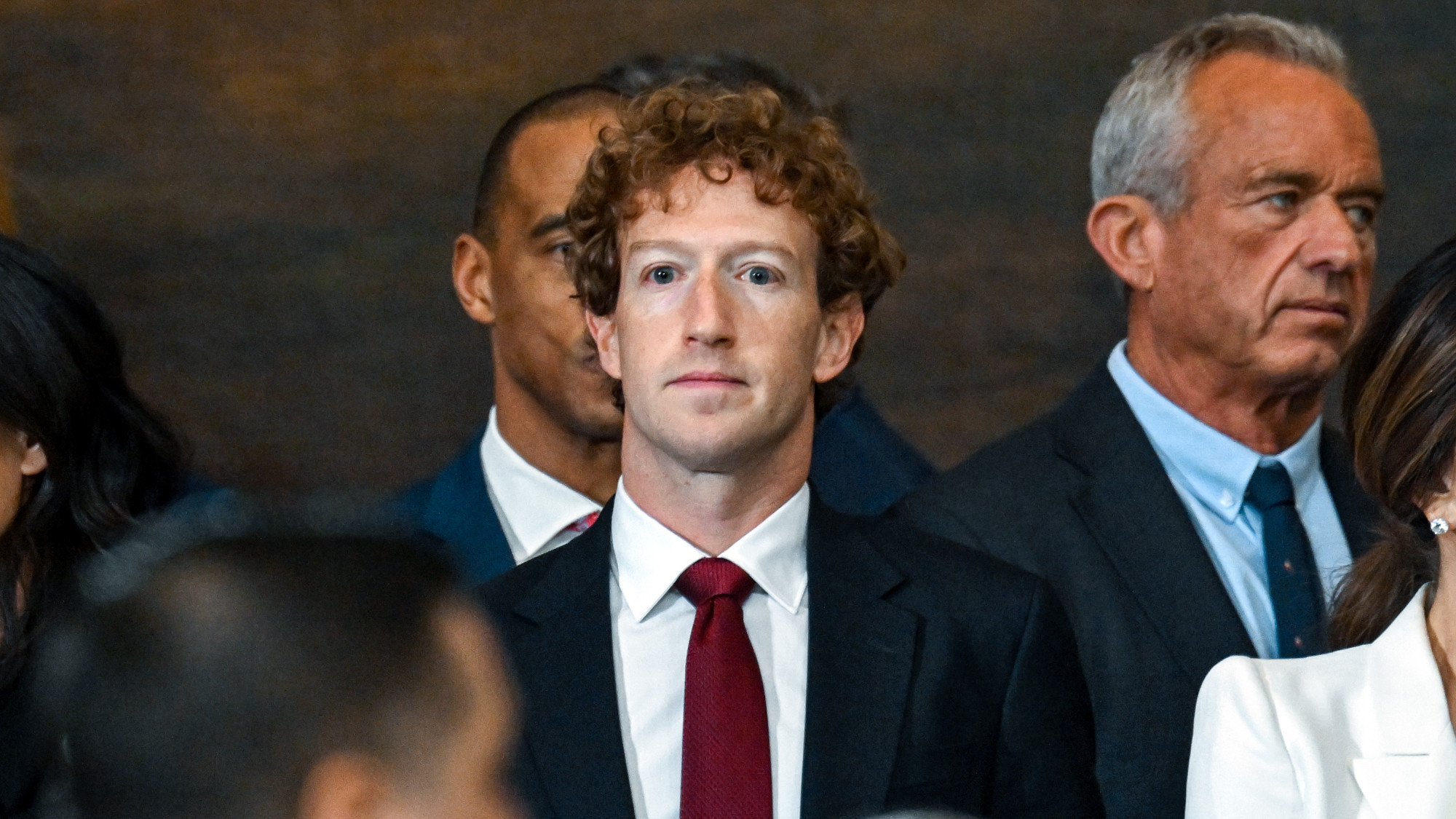 Big tech's big pivot
Big tech's big pivotOpinion How Silicon Valley's corporate titans learned to love Trump